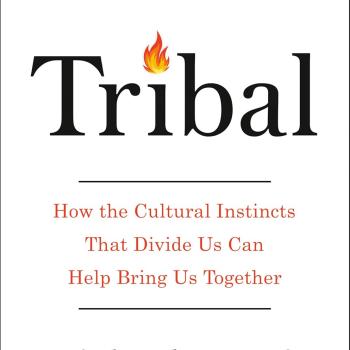Today’s post comes from guest writer, Matt Rhodes. It’s Part 2 of a series where he introduces key ideas from his new book, which I enthusiastically endorsed. He has lived in North Africa since 2011. He and his wife, Kim, serve as part of a church planting team to a previously unengaged people group. For part one, click here.
 Welcome to the brave new world of modern missions.
Welcome to the brave new world of modern missions.
What matters most here is speed and numbers. Nothing could be clearer:
We see this in our missions literature. Today’s best-selling missions books invariably begin with stories of movements: thousands or millions of people being baptized in a few short years.[1]
We see it in the proliferation of plans to disciple unreached peoples through short-term missionaries.
We see it in new ministry approaches that have come to dominate established missions organizations so fully that even leaders in these organizations are often unaware that other approaches exist. These new approaches are geared for the most rapid church growth possible: brand new believers—or even unbelievers—are considered adequate to plant churches.
Churches are expected to beget other churches every six to nine months. There is no need for teaching to interfere with this rapid expansion—in fact, teaching is avoided. Instruction from trained missionaries or teachers in the knowledge of God is seen as toxic—it slows down the reproduction of churches, and might lead new believers to depend on human teachers rather than the Holy Spirit.
We see it in the lack of emphasis that missionaries now put on language and culture acquisition. Once, missionaries were expected to spend a minimum of 30 hours a week in language study for as many as five years. Once, China Inland Mission would not even allow single women to marry until they finished their language study. Now, even organizations that claim to value language study generally give new recruits only two years—if that—of fairly part-time study before encouraging them to move into “ministry.”
Speed and numbers may seem like crude motivations, but we can understand the concerns that drive them charitably. Speed is important because life is fleeting. We want to get the gospel to people as quickly as possible. Numbers are important because we are counting souls.
But there’s a danger here. We could become so concerned with speed and numbers that we no longer take adequate time to offer people anything of real value.
The Danger We Face
This is precisely the trap that much of today’s missions community has fallen into. In our concern to evangelize the world as quickly as possible, we have slowly rejected the most time-consuming aspects of ministry. Do you see the predicament this puts us in?
 People need time and patience, and those of us who work most closely with people will recognize this. While God certainly could—if He wanted—miraculously bypass the slow frailness of our humanity, He chooses not to. Instead, He works through our feeble humanity—just as He worked through Christ’s—to spread the knowledge of Him.
People need time and patience, and those of us who work most closely with people will recognize this. While God certainly could—if He wanted—miraculously bypass the slow frailness of our humanity, He chooses not to. Instead, He works through our feeble humanity—just as He worked through Christ’s—to spread the knowledge of Him.
I don’t know. In the same way, I don’t know all the reasons why God waited until He did for Christ to be born. I don’t know all the reasons why He has allowed parts of the world to grow up without ever hearing the gospel. We are answerable to Him, not He to us.
But while I don’t know why things are exactly as they are, I know the solution has to place less emphasis than we often do on speed and numbers. Isn’t that what Christ did? In John 6, a crowd of thousands wants to make him king. Surely there is room, here, to start some sort of rapid movement, right? But He turns them away.
Jesus was not remotely insecure about the power of his message to change the world, even if it mostly communicated only to a small band of followers. He knew if he took the time to teach people using human words and to love them in human ways, his gospel would reach the ends of the earth.
Essential Time-Consuming Tasks
What are some of the time-consuming human tasks that might still be essential today?
1. Missionaries who intend to evangelize or disciple people need scriptural training.
This training need not always be formal– though it may need to—but it must be enough for missionaries both to explain God’s story and to understand and apply His commands in cultures very different from their own. This includes both explaining what it means that Jesus died for people’s sins and why it is that Jesus’s teaching provides us with a good way—with the only feasible way—of living life.
2. Missionaries need years of dedicated language and culture study.
New Testament missionaries are constantly described as giving powerful and persuasive arguments. They do not assume people’s questions are insincere. They take such questions seriously and offer answers people can believe in. This is impossible when we do not know people’s languages or understand the cultural concerns driving their questions. New Testament missionaries are ready to answer both Gentile and Jewish concerns fluently and precisely.
3. Missionaries need to set aside years to teach and disciple elders.
Jesus spent three years with his disciples, though they already knew the Jewish scriptures, an advantage few unreached peoples today have. While Paul is sometimes portrayed as shortening this process after the coming of the Spirit at Pentecost, his pattern is actually to stay in the cities where he plants churches until he is forced to leave. When he is able, he is happy, as in Ephesus, to stay for years.
I describe these processes and others in greater detail in my book.
For now, I simply want to look at the list above and admit that the tasks above might seem for many to be too humdrum, too every day, too academic or clinically professional to really be used by God’s Spirit. I’ll address this concern in my next post.
[1] See, for example, Church Planting Movements, Contagious Disciple Making, Miraculous Movements, T4T.












